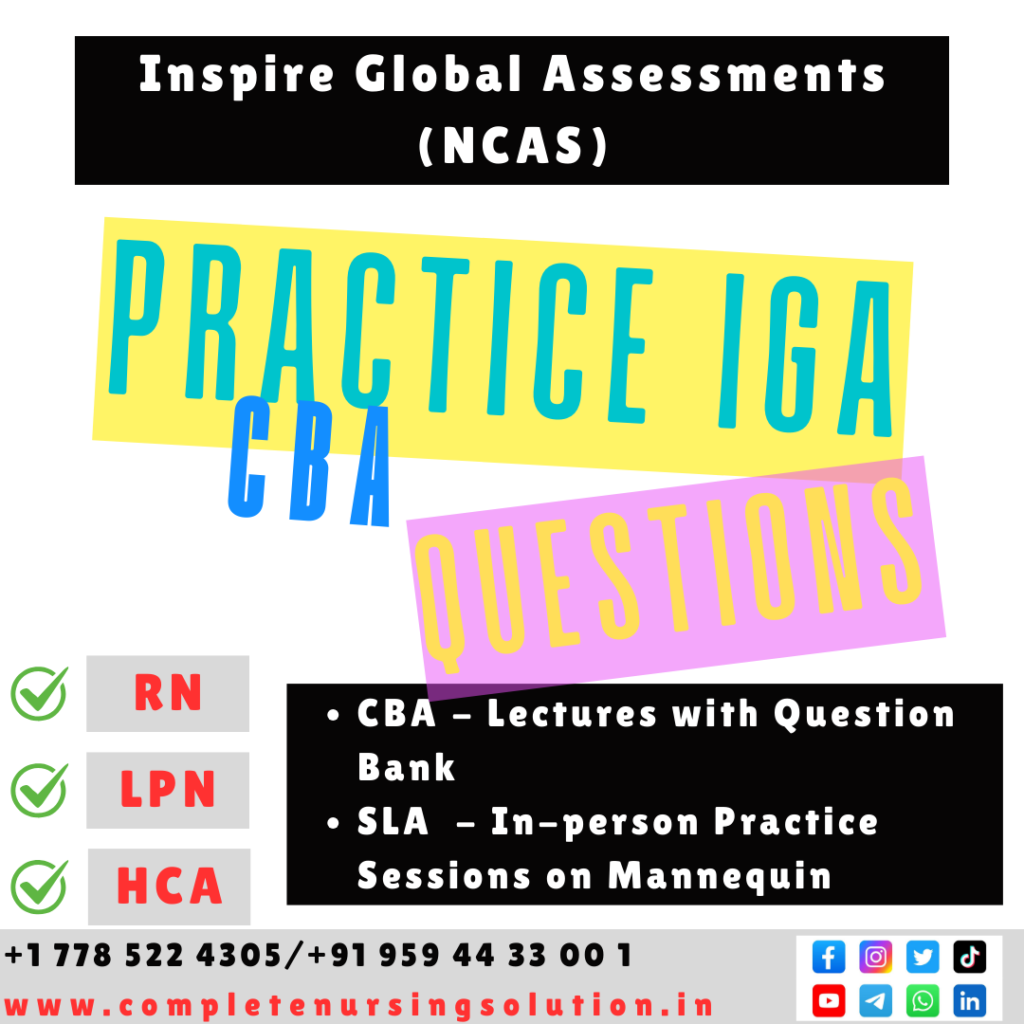In this scenario, it is unknown when home care visits will resume due to severe inclement weather. The high-priority clients are those who are at risk for harm if a scheduled visit cannot be made in 24 hours or more. The client who fell could have sustained a head injury and needs assessment. The client in need of pre-filled insulin syringes could become hyperglycemic if insulin is unavailable. The client with the stage 3 pressure injury has a scheduled dressing change for a serious wound and this should not be postponed.
(Option 2) Maintenance doses of cyanocobalamin for vitamin B12 deficiency are usually administered every 4 weeks. Although this client should receive the injection as soon as possible, postponing the home care visit for 1 or 2 days will not harm the client.
(Option 4) This client can be provided with telephonic care management; the nurse can perform medication reconciliation over the phone and provide instructions regarding care.
Educational objective:
During a weather-related emergency, home care visits are classified as:
1. High priority- unstable clients who need care and are at risk for hospitalization if not seen.
2. Moderate priority - clients who are moderately stable and will suffer no harm if a visit is postponed; telephonic care management can be provided to these clients.
3. Low priority clients who are stable and can engage in self-care and/or have a caregiver who can provide or assist with care.
In this scenario, it is unknown when home care visits will resume due to severe inclement weather. The high-priority clients are those who are at risk for harm if a scheduled visit cannot be made in 24 hours or more. The client who fell could have sustained a head injury and needs assessment. The client in need of pre-filled insulin syringes could become hyperglycemic if insulin is unavailable. The client with the stage 3 pressure injury has a scheduled dressing change for a serious wound and this should not be postponed.
(Option 2) Maintenance doses of cyanocobalamin for vitamin B12 deficiency are usually administered every 4 weeks. Although this client should receive the injection as soon as possible, postponing the home care visit for 1 or 2 days will not harm the client.
(Option 4) This client can be provided with telephonic care management; the nurse can perform medication reconciliation over the phone and provide instructions regarding care.
Educational objective:
During a weather-related emergency, home care visits are classified as:
1. High priority- unstable clients who need care and are at risk for hospitalization if not seen.
2. Moderate priority - clients who are moderately stable and will suffer no harm if a visit is postponed; telephonic care management can be provided to these clients.
3. Low priority clients who are stable and can engage in self-care and/or have a caregiver who can provide or assist with care.
 Elevate NCLEX Preparation # 22
Elevate NCLEX Preparation # 22

 Elevate NCLEX Preparation # 22
Elevate NCLEX Preparation # 22
Nice post. I be taught one thing more difficult on different blogs everyday. It should all the time be stimulating to read content material from other writers and apply a little something from their store. I’d want to make use of some with the content on my weblog whether or not you don’t mind. Natually I’ll provide you with a hyperlink in your net blog. Thanks for sharing.
I like this weblog very much, Its a very nice berth to read and receive info .
Its wonderful as your other content : D, regards for putting up.
Hello! This is my 1st comment here so I just wanted to give a quick shout out and say I truly enjoy reading your articles. Can you suggest any other blogs/websites/forums that go over the same subjects? Thank you so much!
I would like to thnkx for the efforts you have put in writing this blog. I am hoping the same high-grade blog post from you in the upcoming as well. In fact your creative writing abilities has inspired me to get my own blog now. Really the blogging is spreading its wings quickly. Your write up is a good example of it.
Excellent post. I was checking constantly this blog and I’m impressed! Very useful info particularly the last part 🙂 I care for such info much. I was looking for this particular info for a long time. Thank you and good luck.
Tham gia cộng đồng game thủ tại Go88 để trải nghiệm các trò chơi bài, poker phổ biến nhất hiện nay.
Đến với J88, bạn sẽ được trải nghiệm dịch vụ cá cược chuyên nghiệp cùng hàng ngàn sự kiện khuyến mãi độc quyền.
Hello! Do you know if they make any plugins to safeguard against hackers? I’m kinda paranoid about losing everything I’ve worked hard on. Any recommendations?
iwin – nền tảng game bài đổi thưởng uy tín, nơi bạn có thể thử vận may và tận hưởng nhiều tựa game hấp
Tham gia cộng đồng game thủ tại Go88 để trải nghiệm các trò chơi bài, poker phổ biến nhất hiện nay.
Great post. I was checking continuously this blog and I’m impressed! Very useful info particularly the last part 🙂 I care for such information a lot. I was seeking this certain info for a long time. Thank you and good luck.
Super-Duper blog! I am loving it!! Will be back later to read some more. I am taking your feeds also.
Rattling instructive and wonderful bodily structure of content material, now that’s user friendly (:.
you have a great blog here! would you like to make some invite posts on my blog?
Some genuinely nice and useful info on this internet site, too I believe the layout has got excellent features.
Hello.This article was extremely fascinating, especially since I was looking for thoughts on this matter last Monday.
chanced casino chanced casino
I like this weblog very much so much wonderful information.
I have been reading out a few of your posts and i must say pretty good stuff. I will surely bookmark your website.
I do love the way you have framed this particular matter plus it does indeed provide me some fodder for thought. Nevertheless, through everything that I have observed, I simply just hope as the actual responses pile on that people keep on issue and don’t get started upon a soap box involving some other news du jour. Anyway, thank you for this excellent piece and although I can not necessarily go along with this in totality, I regard the viewpoint.
Glad to be one of the visitors on this awe inspiring site : D.
Recently, I was looking for antibiotics quickly and found a reliable pharmacy. It allows you to buy antibiotics without a prescription legally. In case of strep throat, try here. Fast shipping guaranteed. Link: [url=http://antibioticsexpress.com/#]check here[/url]. Cheers.
Lately, I had to find Zithromax fast and came across a reliable pharmacy. It allows you to order meds no script legally. In case of sinusitis, check this shop. Fast shipping guaranteed. Check it out: [url=http://antibioticsexpress.com/#]Antibiotics Express pharmacy[/url]. Hope you feel better.
I do not even understand how I stopped up right here, however I believed this put up was once good. I don’t recognize who you’re but definitely you are going to a well-known blogger for those who aren’t already 😉 Cheers!
Very interesting subject , regards for putting up.